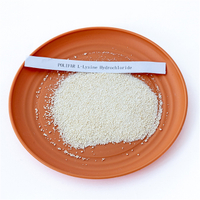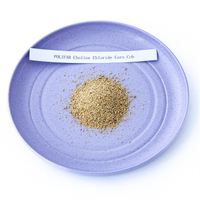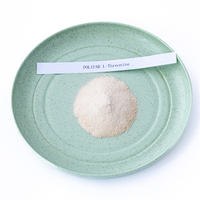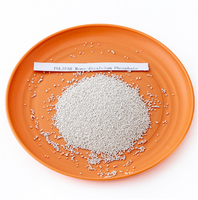Views: 0 Author: Site Editor Publish Time: 2021-08-07 Origin: Site









The serious shortage of protein feed resources has always been a bottleneck problem that plagues balanced development of my country's feed industry, and the rapid adjustment in the breeding mode has also put forward new requirements for feed additives. L lysine hydrochloride crystal has become the preferred feed additive for many livestock in this situation, which can reduce nitrogen emissions and improve protein utilization.
Here is the content list:
What is low protein technology of adding L lysine hydrochloride to feed?
Why should a low-protein formula with L lysine hydrochloride be favored?
What are differences between low-protein and ordinary feed caused by L lysine hydrochloride?
Feed grade L lysine hydrochloride belongs to a family called restricted amino acids, which means that the content of one or several essential amino acids in a certain feed is lower than the animal's requirement.
Traditional feed is based on crude protein, while low-protein feed is based on digestible amino acids and use large amounts of crystal amino acids such as L lysine hydrochloride, following the concept of "ideal amino acid balance".
Under the occasion that the L lysine hydrochloride deficiencies, livestock’s need for other essential amino acids will be limited as well as utilization of amino acids and non-essential amino acids. Supplementing feed grade L lysine hydrochloride to feed to achieve the balance of restrictive amino acids is one of the main technical means of low protein diets.
Is the higher the protein content in the feed, the better? The answer given by scientific research is no. This concept can be easily understood by comparing the requirements of humans and animals for protein.
As the number of people pursuing a healthy life concept increases, excessive protein is rarely seen in the diet. Animals are the same as humans, for that they cannot digest too much protein, for what they need feed additives.
In the feed that does not use L lysine hydrochloride, where does the protein that is not absorbed by livestock go? In fact, through the action of bacteria, they will produce ammonia gas, which will adversely affect production performance and health, and ultimately pollute the environment.
The application of technologies such as feed grade L lysine hydrochloride can greatly alleviate many problems caused by excessive protein content in feed. Soybean meal and fish meal, which are the main sources of protein in feed, have always been relatively expensive, so feed without L lysine hydrochloride prices are relatively high.
In addition, coupled with the inducement of some feed companies, farmers mistakenly believe that high protein content is good feed. As a professional manufacturer of L lysine hydrochloride, we need to help farmers change this concept.
Technological innovations of feed additives companies, such as the use of L lysine hydrochloride to reduce nitrogen emissions, will not only reduce economic costs and make pigs grow healthier, but also save energy and reduce emissions, and reduce environmental pollution from the development of animal husbandry, leading to a huge difference between L lysine hydrochloride low protein feed and ordinary feed.
Reduce resource consumption
Soybeans, which are mainly used to supply animal feed protein, our country imports more than ten million of tons a year. Promoting low-protein feed using L lysine hydrochloride can greatly save soybean meal consumption, alleviate the shortage of domestic protein feed materials, and reduce domestic dependence on foreign soybeans.
Lower cost
Generally speaking, the price of traditional protein feed ingredients is higher than that of low-protein feed using L lysine hydrochloride. For example, in the ration structure of the soybean meal and corn-type feed compounding model, the price of the main protein raw material soybean meal is about 3000-4000 yuan/ton.
And the main energy raw material, the price of corn is about 1800-2100 yuan/ton, L lysine hydrochloride compound feed for every 1% reduction in protein, about 30-40 yuan/ton of feed can be reduced. From a long-term and macro perspective, the use of L lysine hydrochloride can save a lot of cost.
Maintain gastrointestinal health
The high protein content in feed may lead to indigestion. The excess protein that has not been digested and absorbed reaches the back end of the digestive tract, which can easily cause harmful bacteria fermentation.
Energy feed is easier to digest than protein feed. Using L lysine hydrochloride in low protein feed can reduce the burden on the digestive tract of livestock and help maintain gastrointestinal health.
It is necessary to maintain a reasonable protein level, and this is exactly the problem that L lysine hydrochloride feed formulation technology needs to solve. Polifar Group provides users with a reasonable ratio of L lysine hydrochloride, which can effectively meet the needs of livestock growth at various stages. If you are also a farmer pursuing the happy and healthy growth of livestock, Polifar Group will always welcome any consultation from you.






